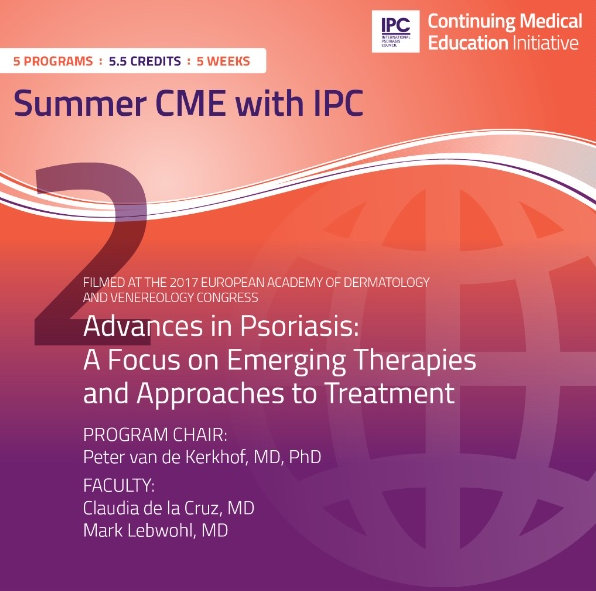Advances in Psoriasis: A Focus on Emerging Therapies

Contatti
International Psoriasis Council
| Telefono (214) 820-2317 |
Worldwide prevalence of psoriasis ranges from approximately 1-3%. A substantial proportion of patients with psoriasis (10-30%) will also develop psoriatic arthritis (PsA). Patients with psoriasis and PsA experience significant burden, which, beyond the physical symptoms, impacts their daily activities and work, and affects them socially and emotionally. Psoriasis and PsA are also associated with significant comorbidities such as cardiovascular disease and metabolic syndrome, chronic obstructive pulmonary disease (COPD), psychiatric issues, cancer, and osteoporosis, necessitating to treatment of psoriasis as a systemic disease.
Despite the importance of effective disease management, unmet educational needs exist among healthcare professionals, resulting in underdiagnoses and suboptimal treatment. In the Multinational Assessment of Psoriasis and Psoriatic Arthritis MAPP multinational survey of 800 physicians, an overwhelming majority of respondents agreed that disease burden of psoriasis is frequently underestimated. And a large majority of dermatologists and rheumatologists polled acknowledge that PsA is likely underdiagnosed. Despite the general knowledge that psoriasis is a systemic disease, the majority of dermatologists reported prescribing topical products as monotherapy for patients with moderate to severe disease.
Other educational needs were revealed in the multinational Global Medical Education Interest Survey of nearly 400 physicians conducted by the International Psoriasis Council (IPC). Respondents indicated that they were most interested in learning more about biologics, new and emerging therapies, combination therapy, lifestyle management, and assessment of patient severity (International Psoriasis Council, unpublished data, August 2016).
Finally, effective communication with and management of patients with psoriasis and PsA within the constraints of the current healthcare system remain a challenge. In the MAPP study, approximately 60% of dermatologists felt that patients with psoriasis required more time and support than other patients and that they do not have adequate time for their care. And only 30% of polled dermatologists reported feeling optimistic or hopeful about managing PsA patients. This review aims to address some of these issues.
